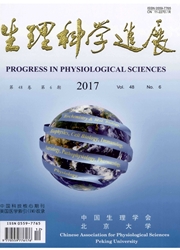

 中文摘要:
中文摘要:
本文主要从生物学角度出发,从遗传学、神经内分泌学、行为学和神经解剖学方面综述了同性恋发生的神经内分泌机制。除了遗传和环境影响之外,围产期异常的性激素环境导致了性倾向的异常。在个体发育过程中通过下丘脑-垂体-性腺轴和下丘脑-垂体-肾上腺轴的作用,性腺类固醇激素和多种神经递质相互作用调节个体的性倾向的形成。同时,本文还提出目前该领域的研究进展、有待于解决的问题,以及进一步的研究方向,希望有助于人们正确认识同性恋的发生,关注同性恋生理和心理健康,预防青少年同性恋的发生。
 英文摘要:
英文摘要:
In this review, we primarily focus on the behavioral-neuroendocrine mechanism of development of homosexuality from genetic, neuroendocrine neuroanatomical and behavioral studies. Besides the influence of genetics and environment, sexual orientation was determined by the early perinatal hormone exposure. Gonadal steroidal hormone interacted with many neurotransmitters in individual development by hypothalamus pituitary adrenal axis and hypothalamus pituitary gonadal axis, which regulated the individual's sexual orientation. It was summarized here about the future directions on sexual orientation and demonstrated problems which would have to investigate next step. All these may be beneficial for our understanding of the homosexuality and paying attention to psychological and physiological health of homosexuality, which is useful to prevent the development of teen-age homosexuality.
 同期刊论文项目
同期刊论文项目
 同项目期刊论文
同项目期刊论文
 期刊信息
期刊信息
